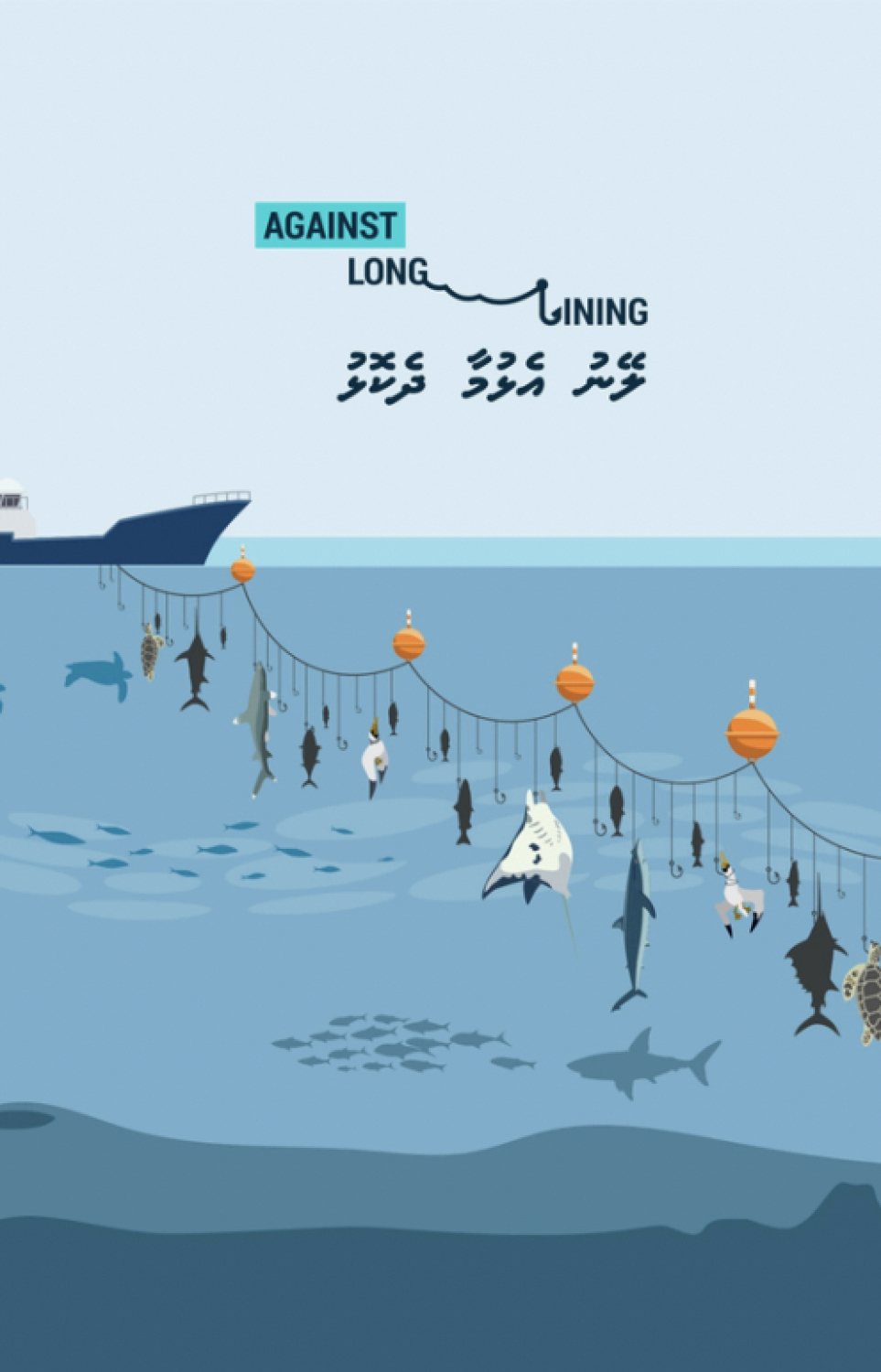The government of Maldives has compiled new regulations surrounding the allowing of longline fishing for bigeye tuna and yellowfin tuna.
Eighteen environmental NGOs in the Maldives have called on the government to disallow this practice, warning that longline fishing would cause irreparable damages.
The NGOs have submitted a joint paper to the government highlighting these concerns. The paper details the adverse effects that allowing longline fishing would have on the environment as well as several industries in the country.
Dolphins, shark, sea birds, turtles and other species often become bycatch in longline fishing. There are concerns that these species, already at the risk of extinction, will see further lessening of population due to longline fishing.
The government intends to allow import of sharks caught as bycatch in longline fishing. NGOs maintain that, although this may be financially beneficial, it may end up encouraging uninhibited fishing.
The world renowned accepted brand of fishing in Maldives is the sustainable form of pole and line fishing. NGOs say that allowing longline fishing will threaten this historical fishing industry long practised in the country.
"Longline fishing would present major challenges to pole and line and handline fishing, as well as present an opportunity to undercut fishermen's supply. Pole and line fishing and handline fishing are means for Maldivian fishermen to earn a living, while also ensuring the protection of the country's marine biodiversity," the NGOs said.
"Hence, longline fishing will only benefit those capable of getting quotas. This may also lead to the establishment of a black market for quota, and undue use of the country's Exclusive Economic Zone," they warned.

They emphasized the key roles of sharks, yellowfin tuna and billfish in the oceans, being top predators. They said that these predators becoming bycatch in longline fishing would destabilize natural food cycles in the oceans.
NGOs believe that increased shark bycatch in longline fishing will prove detrimental to the Maldives' reputation as well. A research conducted in 2019 shows that Maldives earns USD 51.4 million annually through businesses conducting diving sessions with sharks.
NGOs say that decreased populations of sharks would result in Maldives losing the honour of being the top destination for offering diving sites, receiving less tourism revenues in the process.
They also warn that it may lead to a decrease in tuna stock in areas frequented by local fishermen, ending up threatening food security for locals. This may be further exacerbated in the face of climate change and other shocks, such as pandemics.
With the subsequent increased demand, Maldives may need to depend more on imports.
Although longline fishing may appear beneficial in the immediate time, the long term repercussions of the action would be dire.
They went on to say that historically, crews on vessels that conduct longline fishing are overwhelmingly foreigners, who Maldivians who lack training in longline fishing will need to compete against. As Maldives lacks vessels that conduct longline fishing, allowing this may lead to increased foreign vessels fishing in Maldivian waters.
They further reminded that the country, at present, lacks vessel monitoring systems and satellite tracking facilities and other such resources.
"Maldivians prioritize fishing in a way that allows them to stay close to their families. In most cases, longline fishing vessels usually employ foreign crew. The traditional form of fishing practiced by Maldivians allow for fishermen to often return to their communities."